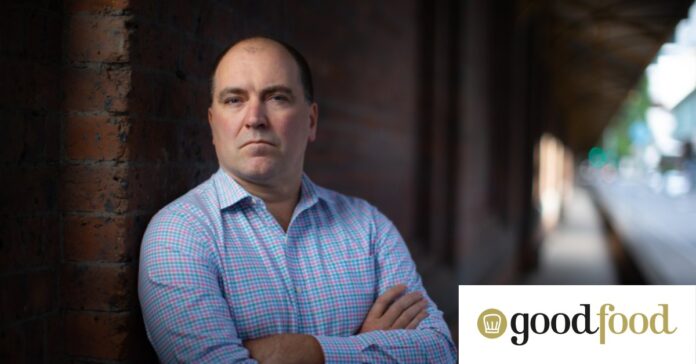[ad_1]
Cost-of-living pressures are biting hospitality businesses hard in the regions, with many forced to shut their doors.

A swathe of restaurants have closed in regional Victoria in the weeks and days before Easter, unable to hang on through a traditionally busy trading period.
Owners blame spiralling interest rates cutting into disposable income, hikes in power costs, government tax increases on liquor licences and insurance companies pushing up premiums.

Gastropubs, cafes, restaurants and boutiques in places like Ballarat, Bendigo, Beechworth, Hepburn Springs and Geelong have all been forced to shut their doors for good, as operators appeal for help.
Restaurateur Tim Matthews placed his flagship Ballarat pizzeria, The Forge, into administration last Monday. He cites a hostile business environment starting with interest rate rises.
“Every time the Reserve Bank announced another rise, I could see a steep drop in our takings,” says Matthews. “Add to this the debt accrued during COVID, a lack of staff, increased cost of energy and produce. And now revenue has dropped to 50 per cent of pre-COVID levels. It is incredibly stressful.” Matthews, who opened The Forge in 2012, plans to restructure and keep trading.

A fellow Ballarat hospitality entrepreneur and winemaker, John Harris, opened the award-winning wine bar Mitchell Harris with his in-laws around the same time. Now the business is on the market.
“We still make a profit, but there are fewer people spending money on what we offer: premium wine and food, and there are fewer people visiting regional Victoria. The tourists have stopped coming.” Harris plans to continue running the wine bar until a new owner is found, and will also make wine and expand his burgeoning rum distillery.
“It is cheaper for us to close the restaurant and still pay rent than to keep on trading. I really worry for the long-term survival of our industry.”
Caliopi Buck, Frank and Connie’s Kitchen and Harry’s Cafe
Hepburn Springs restaurant Frank and Connie’s Kitchen held its last service over the Easter long weekend. Owner Caliopi Buck and her partner Cara Kunze have cut costs for months, but now there is nothing left to cut.
“The turnover has dropped so much it is cheaper for us to close the restaurant and still pay rent than to keep on trading,” says Buck. “I really worry for the long-term survival of our industry.” The restaurant and nearby cafe, Harry’s, are now for sale.

Industry advocate Jodie Gillett says if nothing is done, more regional eateries will be forced to close in the coming months.
As CEO of Commerce Ballarat and chair of the Victorian Regional Chamber Alliance, Gillett says: “It’s like COVID all over again, except with no direct financial support or grant opportunities to assist. Recovering from the pandemic, holding debt, tax increases, staff shortages, skill shortages, drought, flood, new legislation to absorb, the list goes on. So many are at breaking point.”

Sarah Anderson Photography
Recent notable regional Victorian venue closures include Beechworth gastropub The Empire and popular neighbouring cafe Amandhi’s. In Bendigo, sourdough bakery The Good Loaf and The Subtle Eye cafe closed this year alongside boutique Blue Bird Patisserie, which closed last year. In Geelong, upmarket Ambergris Hotel has closed, and three venues in Maldon: Le Sel, Franco’s, and The Kangaroo Hotel have all closed in recent months.
Last week Ballarat cocktail bar Comfort of Strangers and 70-year-old
institution Evans Bakery both announced they were closing for good.

In the Mornington Peninsula town of Flinders, popular Italian restaurant Donna Maria will serve its last bowl of pasta in the coming weeks. Its owners will open a new restaurant, Bau Bau, in the more residential Mount Eliza, as soon as the liquor licence is approved.
Donna Maria co-owner Clinton Trevisi says lunch trade in Flinders has died, also citing the inability to find young staff in the wealthy seaside town, unpredictable weather affecting visitation and the fact that bottled LPG gas is four times more costly than town gas supply as factors in Donna Maria’s closure.
Gillett quotes figures she has gleaned from local businesses. “The electricity bill for one business was $5500 in October 2023; now it’s $8000,” she says. “A liquor licence in 2022 was $1000, now it’s $3400.” She also cites building insurance increases of 40 per cent.
“A lot of this is government red tape,” adds Gillett. “I have been trying to talk to senior ministers to tell them just how bad the regional economy is,” she says. “The further you get from Melbourne, the worse it is.”
Gillett makes a plea. “Please, if you can afford it, come to regional Victoria and dine with us,” she says. “We have great restaurants and cafes in beautiful locations serving fresh, seasonal, local produce with warm hospitality.”
The Allan Labor government has pledged $170 million to aid regional tourism by supporting new events, new attractions and more accommodation for visitors.
“Tourism is a vital part of the regional economy and plays an important role in supporting our state’s economy, with visitors the lifeblood of so many communities,” a spokesman for the Victorian government says.
“Our $170 million regional tourism and events fund will ensure our regional tourism offering continues to be the very best, inspiring people to spend their time in the great towns across our state.”
Restaurant reviews, news and the hottest openings served to your inbox.
From our partners
[ad_2]
Source link


